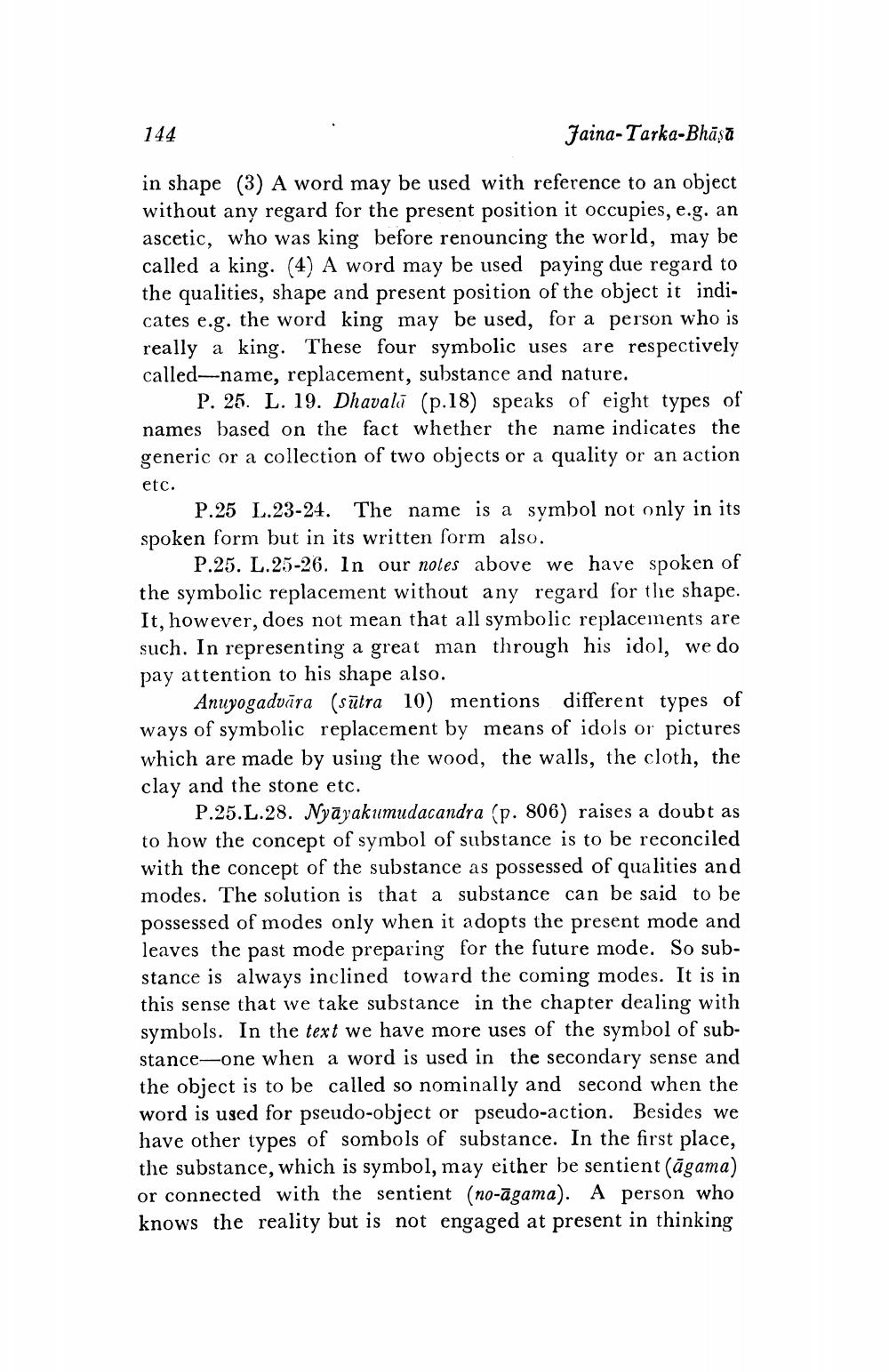________________
144
Jaina-Tarka-Bhāşa
in shape (3) A word may be used with reference to an object without any regard for the present position it occupies, e.g. an ascetic, who was king before renouncing the world, may be called a king. (4) A word may be used paying due regard to the qualities, shape and present position of the object it indicates e.g. the word king may be used, for a person who is really a king. These four symbolic uses are respectively called-name, replacement, substance and nature.
P. 25. L. 19. Dhavală (p.18) speaks of eight types of names based on the fact whether the name indicates the generic or a collection of two objects or a quality or an action etc.
P.25 L.23-24. The name is a symbol not only in its spoken form but in its written form also.
P.25. L.25-26. In our notes above we have spoken of the symbolic replacement without any regard for the shape. It, however, does not mean that all symbolic replacements are such. In representing a great man through his idol, we do pay attention to his shape also.
Anuyogadvīra (sūtra 10) mentions different types of ways of symbolic replacement by means of idols or pictures which are made by using the wood, the walls, the cloth, the clay and the stone etc.
P.25.L.28. Nyāyakumudacandra (p. 806) raises a doubt as to how the concept of symbol of substance is to be reconciled with the concept of the substance as possessed of qualities and modes. The solution is that a substance can be said to be possessed of modes only when it adopts the present mode and leaves the past mode preparing for the future mode. So substance is always inclined toward the coming modes. It is in this sense that we take substance in the chapter dealing with symbols. In the text we have more uses of the symbol of substance-one when a word is used in the secondary sense and the object is to be called so nominally and second when the word is used for pseudo-object or pseudo-action. Besides we have other types of sombols of substance. In the first place, the substance, which is symbol, may either be sentient (āgama) or connected with the sentient (no-āgama). A person who knows the reality but is not engaged at present in thinking




